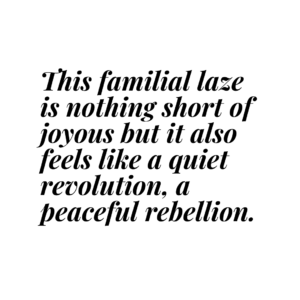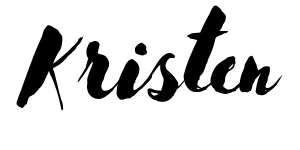CLICK HERE to download the Sabbath Worksheet
Humans, especially those of us populating western nations, are terrible at unplugging. Living in a world that’s always on, always open, and always accessible, we’ve come to mimic the technology our own minds created. We are machine-like, ceaseless in our commotion and consumption, constant in our continual striving for more output, achievement and accumulation. Purpose is inexplicably tied to accomplishment, while idleness irreconcilably divorced from sacredness.
But rest used to be sacred. In fact, biblically the failure to take a day of rest was sinful. The Sabbath was commanded, the Hebrew Shabbat decreed and celebrated. If God could take a rest after six days of accomplishment, many believed, so should we. Shops closed, churches opened, dining room tables beckoned. Life slowed way down.
Thirty plus years ago, culture and technology supported society’s Sunday slackening. Rest was normalized and echoed. In 2020, to step away to observe a Sabbath is counter-culture. It’s now so foreign to our way of living, it simply doesn’t occur to us to create some sacred space one day each week.
Inspired by the book, Full Cup, Empty Spirit by Karen Horneffer-Ginter, Ph.D. (who was inspired by Wayne Muller’s book, Sabbath: Finding Rest, Renewal, and Delight in Our Busy Lives), I adopted the practice of a weekly Sabbath about 18 months ago. It has no biblical leanings and sometimes veers from an orthodox model of completely turning away from technology, commerce and work, but it’s nevertheless firmly planted into my family’s way of life.
On this day, I make an effort to make no plans and run no errands. Marc, the kids and I turn off our phones, tablet and computers, and I avoid engaging in rigorous house projects, chores or exercise.
In its purest form, our Sabbath involves any combination of the following: sleeping in, make a big brunch together, playing board games, reading, napping, journaling, snacking and baking. We might go for a leisurely bike ride, sunset walk or throw a Frisbee around at the park. For the most part, we turn down birthday party invitations, politely decline dinner offers, say no to playdates. Some of us stay in our pajamas all day.
We retreat from the world. Its tasks and texts, its effort and exertion, will unquestionably find us again Monday morning. But on Sunday, I am unapologetically idle and inaccessible.
This familial laze is nothing short of joyous but it also feels like a quiet revolution, a peaceful rebellion. It’s a middle finger to the incessant activity that co-opts our happiness and makes us think we’re getting somewhere when really we’re mostly chasing our own tail.
In those instances when I have managed to protect our Sabbath (often from my own internal tendencies toward busyness and my obsession with task-completion), the boundary it creates provides a wealth of good feelings, including spaciousness, lightness, connection, love, gratitude, and joy. It’s as if time stands still for a day. We linger, we lounge, and we chit chat. Unlike the other six days of the week, Sunday is aimless, its only intention to cultivate all the good feelings that only intentional aimlessness can evoke.
Inevitably, bits of tasks or errands unwittingly tiptoe in some Sundays. Sadly, not every Sabbath is greeted with the sacredness it deserves. Life is a dance of remembering and forgetting, and sometimes I forget to hold the bounds of our Sabbath tightly and too much activity creeps in. And when I find myself bemoaning this misstep Sunday night, I commit to doing better next week.
My kids and husband love the “Sunday me.” She’s easy and fun, light and playful, carefree and loving. And while I don’t lose these parts of myself Monday morning, they’re a lot easier to access when the world isn’t tugging at me to get something done.
Monday morning arrives and I greet it with a rested and excited spirit. I’m excited to rejoin the world and make a contribution through my work. Of course, I wouldn’t want every day to be a Sabbath. We need an ebb but we also need a flow. And here’s the thing: flow becomes a lot more effortless when I have given myself a day to rest and retreat. The fact is, the better I get at ebbing; the better I get at flowing.
